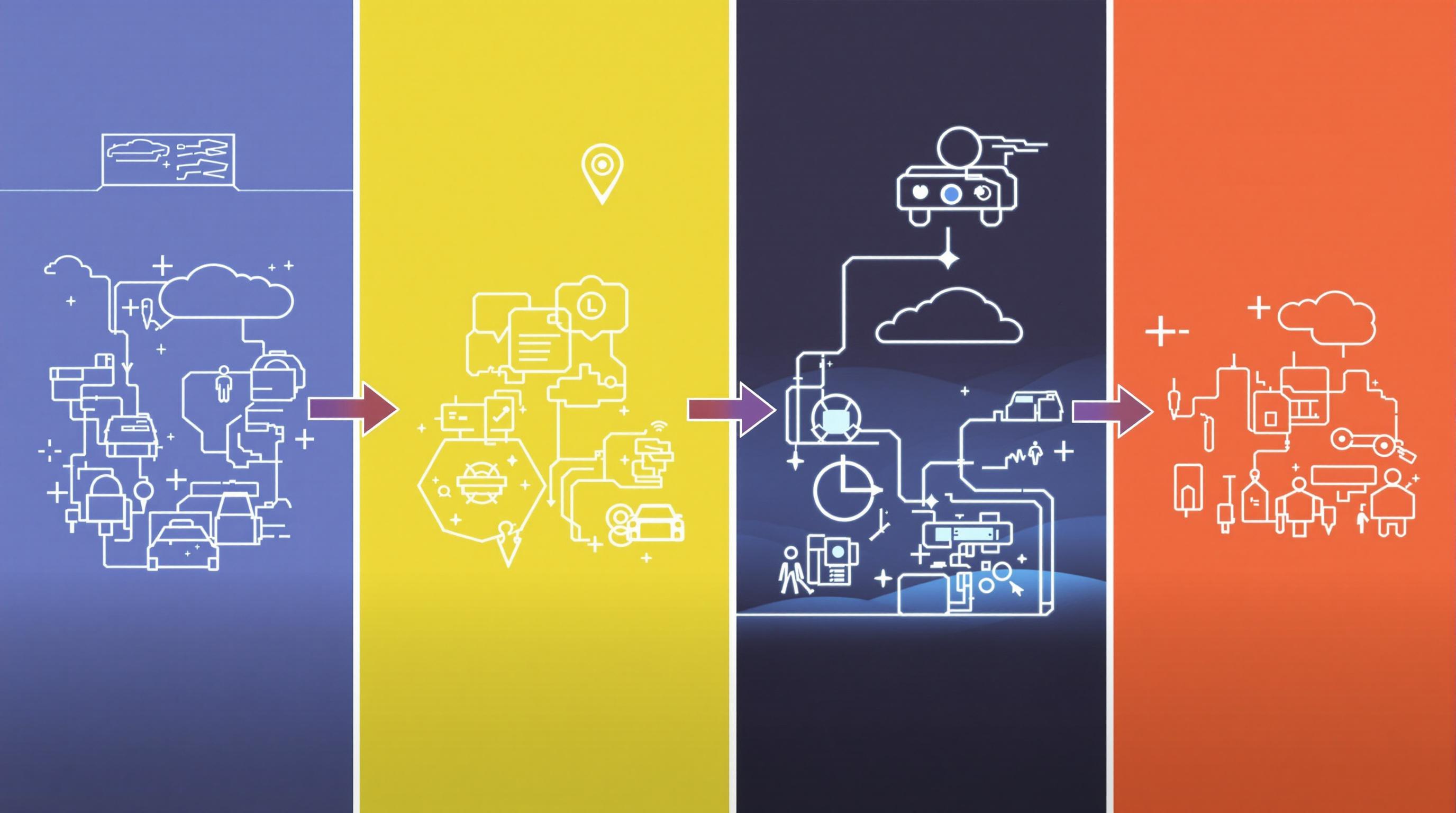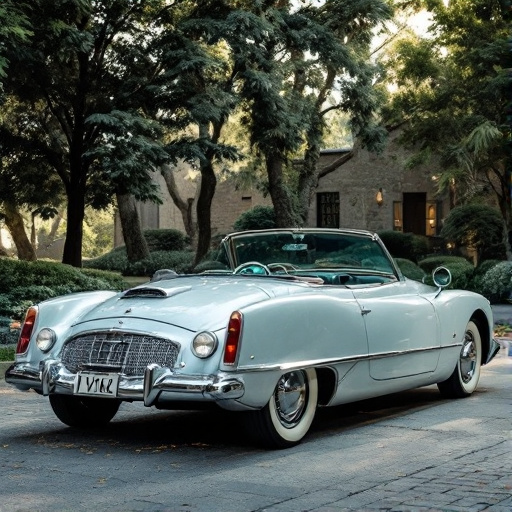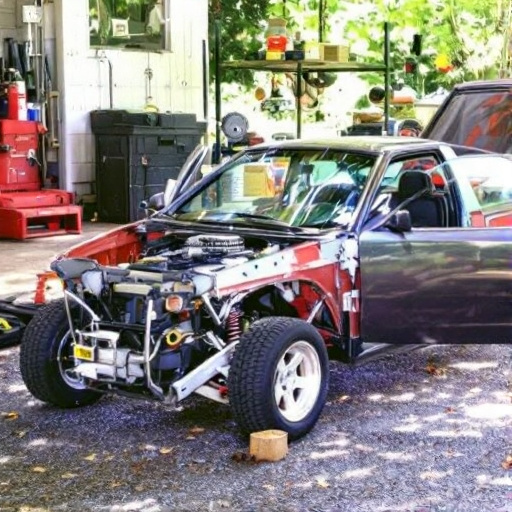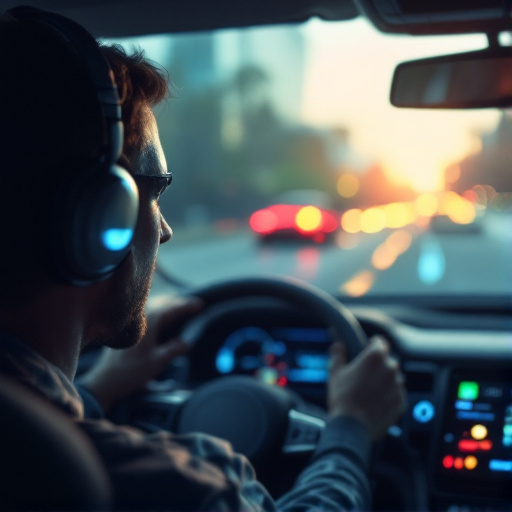Featured Articles
- Electric Dreams: How Holographic Displays Are Revolutionizing the Future of Automobile Cockpits
- Electric Dreams: The Unexpected Rise of Vintage Electric Cars in Today’s Eco-Conscious Market
- "From Road Rage to Digital Rage: How Auto Tech is Changing Our Emotional Connection to Driving"
- "Silent Streets: The Rise of Electric Vehicles and Their Unintended Effects on Urban Wildlife"
- The Rise of AI-Driven Car Culture: How Algorithms are Shaping Our Driving Preferences and Choices
The Rise of AI-Driven Car Culture: How Algorithms are Shaping Our Driving Preferences and Choices
The Rise of AI-Driven Car Culture: How Algorithms are Shaping Our Driving Preferences and Choices
The emergence of AI-driven technologies is reshaping our car culture, influencing everything from vehicle design to our driving habits and preferences. As algorithms steer our choices, the future of transportation is becoming increasingly interconnected, personalized, and data-driven.
Understanding the Algorithmic Shift
We’ve all been there – you’re casually scrolling through social media, and then bam! You see an ad for that sleek new electric vehicle (EV) that seems to perfectly match your lifestyle, all thanks to clever algorithms. This isn’t just a coincidence; it’s a reflection of how AI algorithms are dramatically reshaping our car culture and driving preferences.
AI applications have been integrated into various aspects of automotive technology. From predictive maintenance that alerts you about impending mechanical failures to personalized navigation systems that guide you through traffic, the technology is omnipresent. In fact, research from the McKinsey Global Institute states that by 2030, nearly 75% of new cars will be equipped with AI, fundamentally transforming our driving experiences, preferences, and choices.
Statistics & Case Studies: The Data Tells a Story
Consider the case of Tesla. Not only is Tesla one of the most recognizable car brands of the 21st century, but the company has also effectively harnessed big data and AI. Tesla cars learn from the driving habits of millions of users globally via machine learning algorithms, which enhances their autonomous driving capabilities over time. According to a report from Statista, more than 30% of U.S. car users expressed interest in purchasing a fully autonomous vehicle. This growing acceptance showcase how AI shifts preferences and reshapes expectations.
Imagine it's a Saturday night, and you're headed out with friends. Instead of deciding where to go, your car's AI seamlessly analyzes your favorite hangouts, music preferences, and even suggested routes thanks to real-time data. This scenario isn't just a futuristic dream—it’s quickly becoming a regular occurrence. In a 2022 survey conducted by Pew Research, about 62% of respondents reported that they would rely on AI to suggest destinations based on past behaviors. This shows our driving preferences will increasingly be driven by what algorithms deem suitable for us.
How AI is Customizing Our Driving Experience
The convenience of AI doesn’t stop at simply suggesting optimal travel routes. Algorithms are entering the market, influencing consumer choices and preferences. Take, for example, ride-sharing platforms like Uber and Lyft. According to the International Transport Forum, nearly 59% of ride-sharing users say they prefer the app because it eliminates the hassle of owning a vehicle, especially for younger generations. The convenience it provides is stemming from intelligent algorithms that pick the best route and the right driver.
Furthermore, personalization extends beyond just recommendations. With connected cars, your vehicle can collect data on your driving habits—how often you accelerate quickly, your preferred routes, and even how you handle turns. This data can lead to customized tips for improving fuel efficiency or safety, illustrating how algorithms can create a more tailored experience. Who knew your car could become your personalized coach?
Consumer Behavior: The Allure of Automation
Now, let’s throw some humor into the mix. Ever heard the joke about the self-driving car? It goes something like this: "Why did the self-driving car break up with its human partner? Because it found someone who fits better with its algorithm!” While it may not be the funniest quip, it reflects the modern love affair between consumers and automation.
Data from Forrester Research indicates that 70% of consumers are more likely to show interest in automotive products that feature AI technology. This stems from a generation growing up with smartphones and smart gadgets—an interactivity that shapes expectations. The escalation toward automation isn’t just a trend; it’s an expectation as we integrate AI in our daily routines.
Challenges in AI-Driven Car Culture
However, it’s not all smooth roads ahead. Though AI presents vast opportunities, there are challenges associated with relying on algorithms. Concerns over data privacy and security are amplified as connected cars gather massive amounts of user data. The idea that a corporation could access your driving history and preferences may strike you as invasive. In fact, a study conducted by IBM revealed that about 65% of consumers feel uncomfortable sharing data regarding their driving habits.
Furthermore, there’s the looming question of dependency. Will we become so reliant on algorithms that we lose our ability to make driving decisions? The concern is that while AI can enhance safety and optimize driving, it may breed a generation of drivers less equipped to handle unexpected situations on the road.
Case Study: Car Ownership in the Age of AI
Take a look at the city of Reykjavik, Iceland, where research indicated that ride-sharing services have reduced car ownership rates by up to 24%. This shift demonstrates how AI-driven solutions are changing not only individual preferences but entire societal norms surrounding car ownership. As urban environments evolve, a dependence on AI-driven rideshare services may become mainstream, further influencing vehicle design and consumer expectations.
An Outlook on the Future
The road ahead is filled with possibilities. As we move further into a future driven by AI, consumer preferences around vehicles will likely evolve, leaning towards what is most convenient and efficient. The adoption of electric vehicles and autonomous driving will likely gain momentum as preferences realign with broader societal values such as sustainability and safety.
Moreover, car manufacturers worldwide are being influenced by AI technologies in their R&D efforts. A study by Gartner shows that 60% of automotive executives believe AI will enhance their competitiveness. This belief drives firms to invest in smart technology and behavioral prediction capabilities, setting the stage for a future where vehicles become an extension of not only our driving preferences but our identities as individuals.
The Human Element in an Algorithm-Driven World
As someone who remembers the days when driving manuals included actual manuals, I’d argue that it’s crucial to maintain the human element in an algorithm-driven world. Cars have always been more than machines; they’re a form of self-expression. From classic muscle cars to eco-friendly EVs, our vehicles tell stories about who we are. While algorithms can guide our preferences, personal experiences and sentiments should continue to shape our choices.
Conclusion: The Future of Driving
In closing, the rise of AI-driven car culture is upon us, reshaping the landscape of transportation in ways we never imagined. Algorithms influence not just what we drive but how we drive, as well as how we think about cars and the act of driving itself. The integration between technology and transport holds great promise and challenges for citizens across generations. While navigating this new terrain, let’s not forget to embrace the spirit of adventure, reconnect with the human experience, and cultivate our own preferences—algorithm or no algorithm.



